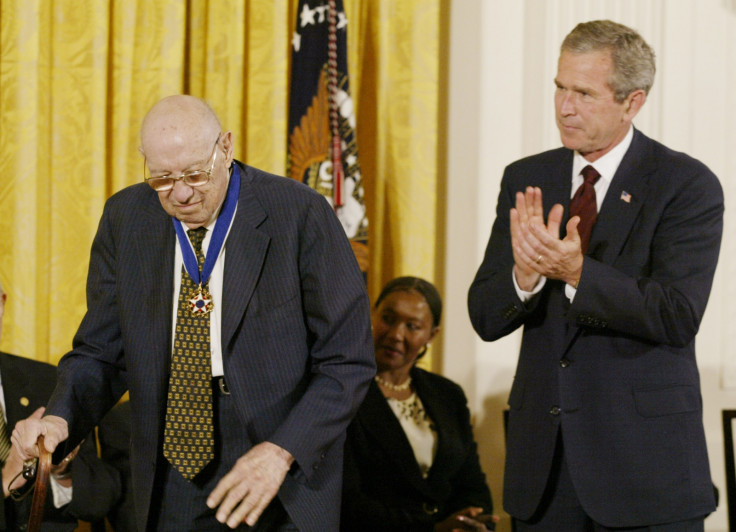Stefan Stern: Why All Today's Management Gurus Are in Debt to Peter Drucker

"I never knew the old Vienna before the war with its Strauss music, its glamour and easy charm."
Film buffs among you may shout "The Third Man!" - for those are indeed the opening lines to Carol Reed's masterpiece, which was shot here in 1948 and released the following year. Those words inevitably come to mind - well, inevitably for me anyway - at the first sight of the glorious Habsburg architecture which adorns the streets of this former imperial city.
Management gurus of the world are descending on Vienna this week for the sixth annual Global Peter Drucker Forum, which is held each November in the city of his birth. Drucker (1909 - 2005) was the 20th century's most influential writer on the practice of management. He may never be equalled.
Drucker published well over 30 books in a long career that took in major industrial transformations, the emergence of "knowledge workers" (a label he popularised), the rise of computers (a potentially "moronic" presence, he ventured), and the fall of communism.
Having seen the extremes of both left and right flourish in pre-war Vienna, Drucker had a dread of extremism and ideology. The books he wrote, once safely established in the US, espouse pragmatism, simplicity, and good conduct.
Much of what we call management consists of making it harder for people to do their job.
It is Drucker's timeless appeal which has attracted today's leading management thinkers - Clay Christensen, Roger Martin, Rita McGrath and Steve Denning, among many others - to travel to "Old Europe", as Donald Rumsfeld might call it, to seek inspiration and compare thoughts on what good management might look like in the early 21st century.
The theme of this year's event, the "great transformation", suggests that ambitious ideas are being sought. I have been lucky enough to attend all but one of these Drucker-fests, and this year [full disclosure] I am a guest of the hosts. But, objectively speaking, it has grown into one of the most prestigious business conferences in the world: a sea-level Davos for managers.
But what, you may ask, is the point of management gurus? Do we really need them? Management as experienced by so many of us can be nasty, brutish and fraught. Isn't management all about common sense anyway?
Drucker might well have agreed with quite a lot of that. "Much of what we call management," he said, "consists of making it harder for people to do their job."
By showing up in Vienna this week, today's thinkers are tacitly conceding that Drucker had a point; that his often simple and unpretentious approach gets nearer to the truth than some of the grand
theories.

For himself, Drucker did not claim guru status. He said the label became popular because newspapers did not always have room to print the word "charlatan". He did make this one modest assertion: that he wrote about things which were "visible but not yet seen". Genuine "thought leadership" should do that.
We should be sceptical about gurus, real or imagined. There is an unfortunate tendency among some business writers to lump together a few companies that seem to be succeeding at the moment, invent a theory which may or may not tie them together, and launch a new grand concept on the world.
But companies rise and fall, their success is very often temporary and partly a matter of luck. Grand unifying theories collapse as the world changes, and new competitors spoil the incumbent's fun.
One of my father's favourite Latin tags (he is also a classically educated Central European in exile) is: haruspex haruspicem, cum videt, ridet. It means: "When one soothsayer sees another one, he smiles."
We should listen carefully to what today's gurus are telling us, while remembering that some of the best ideas about management have already been around for quite a while, and have stood the test of time.
Stefan Stern is a business, management and politics writer. He writes for The Guardian and The Financial Times and is a visiting professor at Cass Business School.
© Copyright IBTimes 2025. All rights reserved.





















